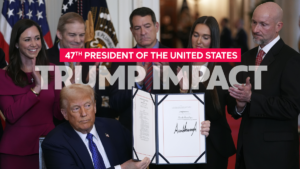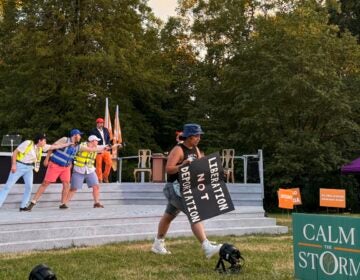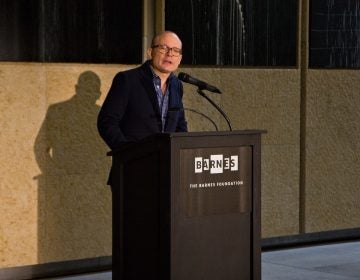Philly theaters reel from sudden loss of NEA funding
Arts organizations in Philadelphia and elsewhere scramble to cope with an abrupt cancellation of promised federal funds from the National Endowment for the Arts.
Listen 2:32
Leigh Goldenberg, managing director of the Wilma Theater in Philadelphia, is hoping the private sector will step into the money vacuum left by the NEA. The Wilma lost a $25,000 NEA reimbursement for its production in March of Inua Ellams’ ''The Half-God of Rainfall,'' (Emma Lee/WHYY)
From Philly and the Pa. suburbs to South Jersey and Delaware, what would you like WHYY News to cover? Let us know!
The emails started arriving late Friday night.
At 9:44 p.m., Tyler Dobrowsky, co-artistic director of the Philadelphia Theatre Company, got word that $50,000 he was expecting from the National Endowment for the Arts had been rescinded.
The NEA awarded the money in December 2024 to support the production of “Night Side Songs,” a musical about cancer treatment. The performance ran from Feb. 21 to March 9, preceded by free pop-up performances in area hospitals and recreation centers.
The run is now over and the $50,000 has been spent. Dobrowsky was waiting for the funds to be reimbursed per his contract with the NEA.
“We definitely need it and we’re counting on it,” Dobrowsky said. “It’s not impossible to recover that amount of money. We’re a $4 million organization, so there are things that we can do. But it is a real shame. To have the federal government pull back on money that had already been awarded can be very disheartening.”

Over the weekend, NEA pulled back money it had already awarded from hundreds, perhaps thousands, of arts organizations across the country. In many cases, that money has already been spent.
In its emails to would-be recipients, the NEA stated that its funding guidelines have been changed “as prioritized by the President” and it would not honor previous agreements with organizations it claims fall outside those priorities.
The NEA itself has been threatened with elimination in a preliminary 2026 federal budget proposed by the administration of President Donald Trump.
In 2024, the NEA distributed $25.2 million in Pennsylvania, part of a statewide total of $64 million in cultural funding alongside the National Endowment for the Humanities and the Institute of Museum and Library Services, all of which have pulled back already awarded funds.
“Breaking those commitments is not just destabilizing – it is a breach of public trust,” said Patricia Wilson Aden, president and CEO of the Greater Philadelphia Cultural Alliance, in a statement.
“These funds support educational programming, job creation, public health initiatives, and community-building efforts across our region,” she said. “They are vital pillars of civic life and public good.”
The GPCA has released a document advising arts organizations how to prepare and respond to the cessation of NEA funds.
Disrupting the creative pipeline
Philadelphia Theatre Company was developing “Night Side Songs” for a possible Broadway run in partnership with American Repertory Theater, which commissioned the work. Dobrowsky said he is now working to secure a yet-unnamed New York City theater to stage the play later this year.
He said the elimination of federal funds disrupts the pipeline of new creative work.
“We are on the cutting edge of plays that will be off-Broadway, on-Broadway, produced regionally,” he said. “When you cut that kind of funding you are taking away the next generation of the plays that are on Broadway, or the plays that you take your kids to see in 20 years. Future classics.”
Smaller arts organizations in Philadelphia will feel the hit harder. PlayPenn, a new play development organization, holds an annual conference in July of playwrights presenting scripts in development, for which it has regularly receives about $15,000 from the NEA. This year, that money has been pulled away.
The conference develops scripts that may later be produced by professional theater companies, such as last year at Philadelphia’s Azuka Theatre (R. Eric Thomas’ “An Army of Lovers”) and the Philadelphia Theatre Company (Roger Q. Mason’s “The Duat”).
“That pipeline is very deliberate and thought out. We budget for it,” said Che’Rae Adams, PlayPenn artistic director. “We don’t want a piece to be developed and then just sit and not be seen by a larger group of people.”
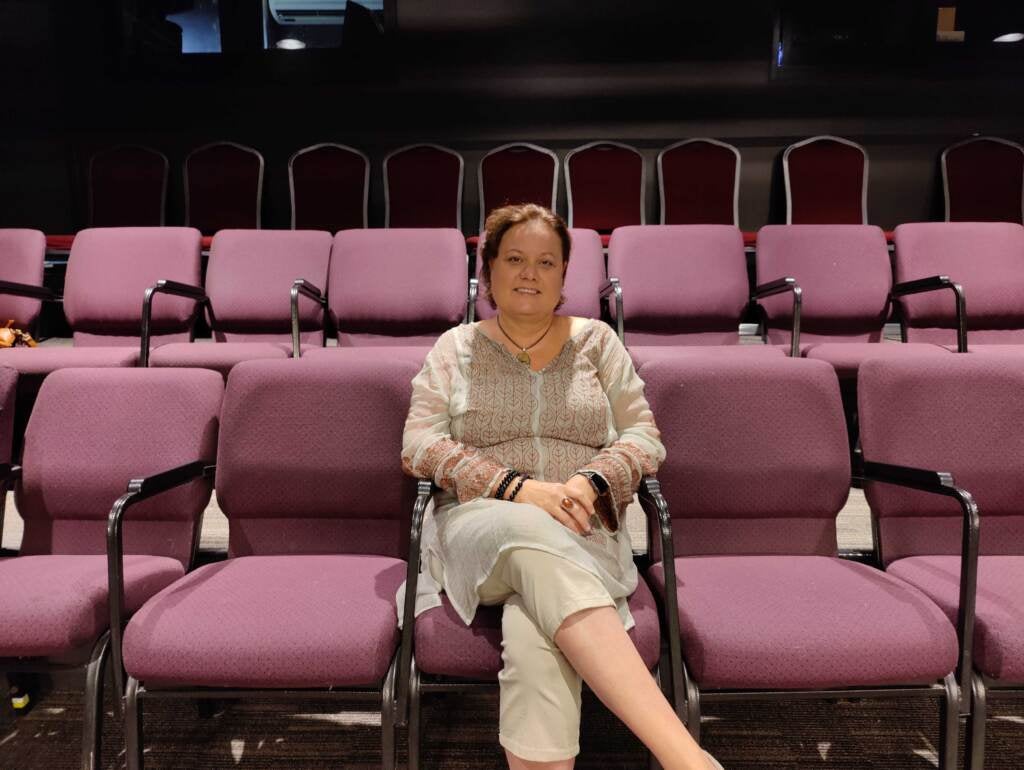
Adams said $15,000 is roughly the cost to stage a single play reading during the conference. Instead of presenting four new scripts this summer, Adams is forced to trim it down to three due to the loss of the NEA grant.
“It’s disappointing that that voice won’t be heard,” she said. “What we do best is amplifying marginalized voices. I think it’s an attempt to silence those voices. It’s much bigger than PlayPenn. It’s this attempt to control the art that is in the world.”
The loss of federal funding does not surprise Adams. Earlier this year, the NEA sent out notice that its funding guidelines will not allow for projects promoting diversity, equity and inclusion programs. At that time, Adams began to assume the $15,000 already awarded to PlayPenn may never arrive.
Stepping in and stepping up
After the National Endowment for the Humanities announced a month ago that it is terminating grants, the philanthropic Mellon Foundation announced it would distribute $15 million in emergency funding to cultural organizations.
Leigh Goldenberg, managing director of the Wilma Theater in Philadelphia, is hoping the private sector will step into the money vacuum left by the NEA.
“We’re going to be sharing this information very soon with the general public,” she said. “This is just another way that we keep going back to individuals and saying, ‘Here’s where the government is not using your tax dollars towards purposes that they said they were going to, and now we need to ask you for it.’”
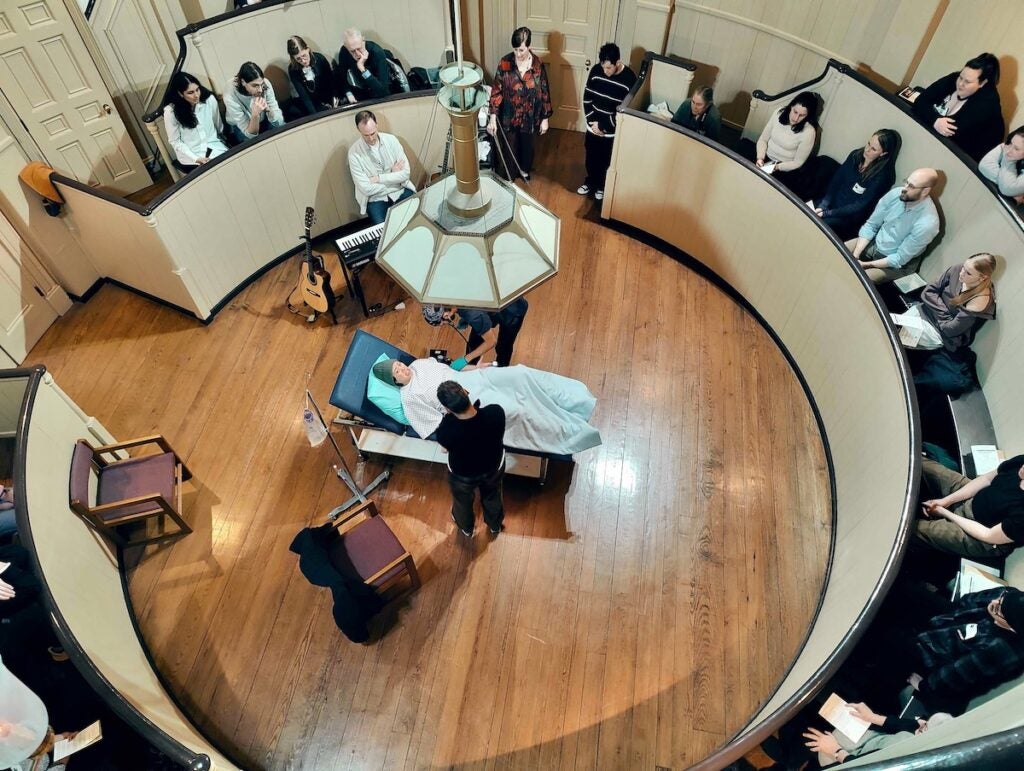
Since receiving word that the Wilma would not be seeing a $25,000 NEA reimbursement for its production in March of Inua Ellams’ “The Half-God of Rainfall,” Goldenberg has been engaged in a flurry of communications with theater companies in Philadelphia and beyond about next steps.
Each company has seven days to appeal the NEA’s decision. Some are pondering collective action.
“Based on the amount of grants that were canceled, I don’t know that there was a strategic look at each of these projects to say this fits or does not fit,” Goldenberg said. “It feels like painting with a broad brush: ‘We don’t want to support the arts.’ I don’t know what an appeal process looks like for that, I think there might be legal action.”
The loss of funding is a second major blow to theater companies that have not yet recovered from the pandemic shutdowns of 2020 and the shift in audience trends they created. Since the pandemic, many theaters in Philadelphia have increasingly looked to each other for support and collaboration to stretch what resources they have.
Deborah Block, artistic director of Theatre Exile in South Philadelphia, lost a $25,000 NEA grant for her production of R. Eric Thomas’ “Glitter in the Glass,” which starts rehearsals this week.
“Contracts were written, plans were made, and a production is happening,” she said.
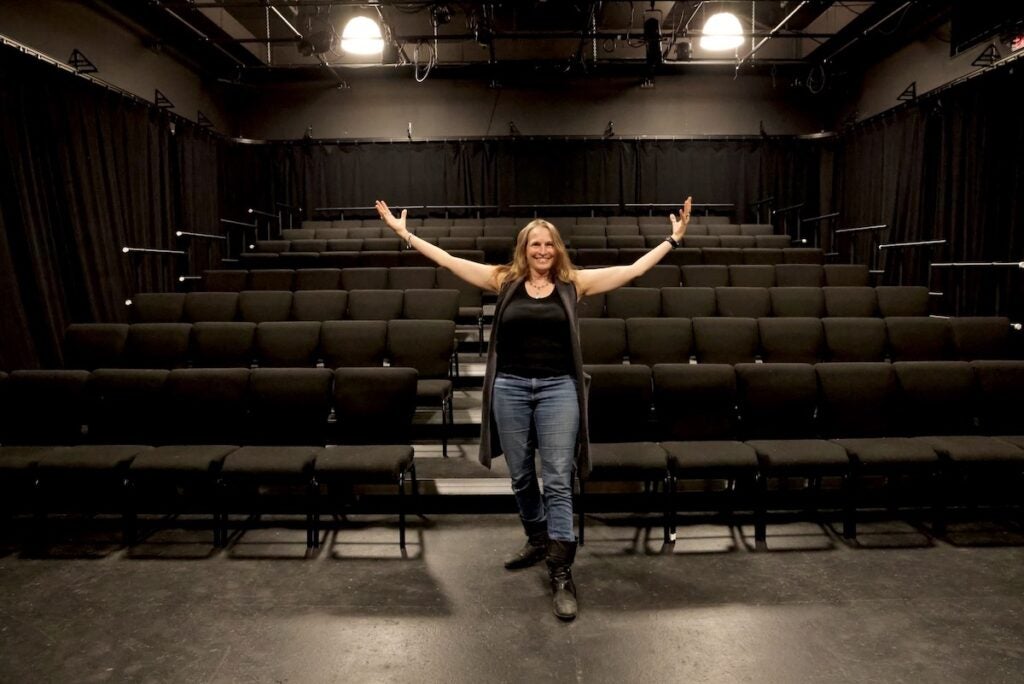
It is a stinging loss for a company with an annual budget of just $850,000 for a three-play season and year-round education programs. Block has begun sharing ideas with other arts organizations about how to respond.
“One of the things that I love about our community is when there’s a problem, we come together and we talk,” she said. “When you feel your very livelihood is being threatened and the things that you value, you reach out to the people that you care about. I’m very happy to say that we’re each others’ support system.”
Editor’s note: This story has been updated to reflect the correct amount of a Theater Exile grant reimbursement.

Get daily updates from WHYY News!
WHYY is your source for fact-based, in-depth journalism and information. As a nonprofit organization, we rely on financial support from readers like you. Please give today.





